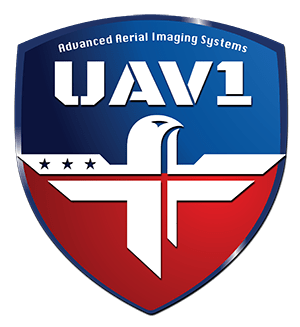Thermal Imaging Overview:
Thermal imaging technology, a marvel of modern engineering, serves an array of applications, from security surveillance to ecological studies. While these devices are widely permitted in most U.S. states, California imposes stringent prohibitions, especially when these devices are intended to be affixed to firearms.
The question arises, “Are thermal imaging devices legal?” In the U.S., the general answer is affirmative for civilians, subject to federal, state, and local regulations. This article aims to elucidate the legality of owning and employing thermal imaging devices within the United States, with insights into the regulations of the United Kingdom, Canada, Australia, and New Zealand.
Glossary of Thermal Imaging and Hunting Terms:
Thermal Imaging Device: A device that detects infrared radiation to create an image based on temperature variances, enabling visibility without reliance on light.
Infrared (IR) Illuminator: An accessory that projects light in the infrared spectrum, imperceptible to the naked eye but augmenting the efficacy of night vision gadgets in dim environments.
Fully Automatic Fire: A feature of firearms allowing continuous firing for the duration the trigger is depressed.
Pod Arrows: Projectiles equipped with a pod for conveying tranquilizing agents, generally utilized in animal control or management.
Understanding these terms is essential as they frequently intersect with the regulations surrounding the use of thermal imaging and night vision equipment, particularly in the context of hunting and firearms. Knowledge of these definitions and regulations is critical for responsible ownership and use.
United States
Thermal imaging and night vision devices are generally legal for civilian use in the United States. However, the legality can vary based on how these devices are used, particularly concerning hunting and attachment to firearms.
For instance, while it is legal to own such devices, some states restrict the use of thermal imaging or night vision equipment for hunting, especially at night. In California, attaching night vision or thermal imaging devices to firearms is illegal. It’s important for individuals to consult their local laws and regulations to ensure compliance, as there can be significant differences from state to state.
Laws By State
Thermal imaging technology is subject to state-by-state regulations in the United States, particularly concerning its application in hunting. Here’s a concise overview of the legal landscape in various states for thermal imaging use:
- In many states, thermal imaging devices are legal for hunting, but may have restrictions when used during certain times or for specific game.
- California prohibits the attachment of any thermal imaging device to a firearm.
- States like Colorado and Wyoming allow thermal imaging for hunting but prohibit the use during night hunts or for certain species.
- Other states have specific seasons or require permits for using thermal devices for hunting.
Each state’s regulations are unique, and it’s imperative for individuals to check local laws to ensure they are in compliance when using thermal imaging devices for hunting or other purposes.
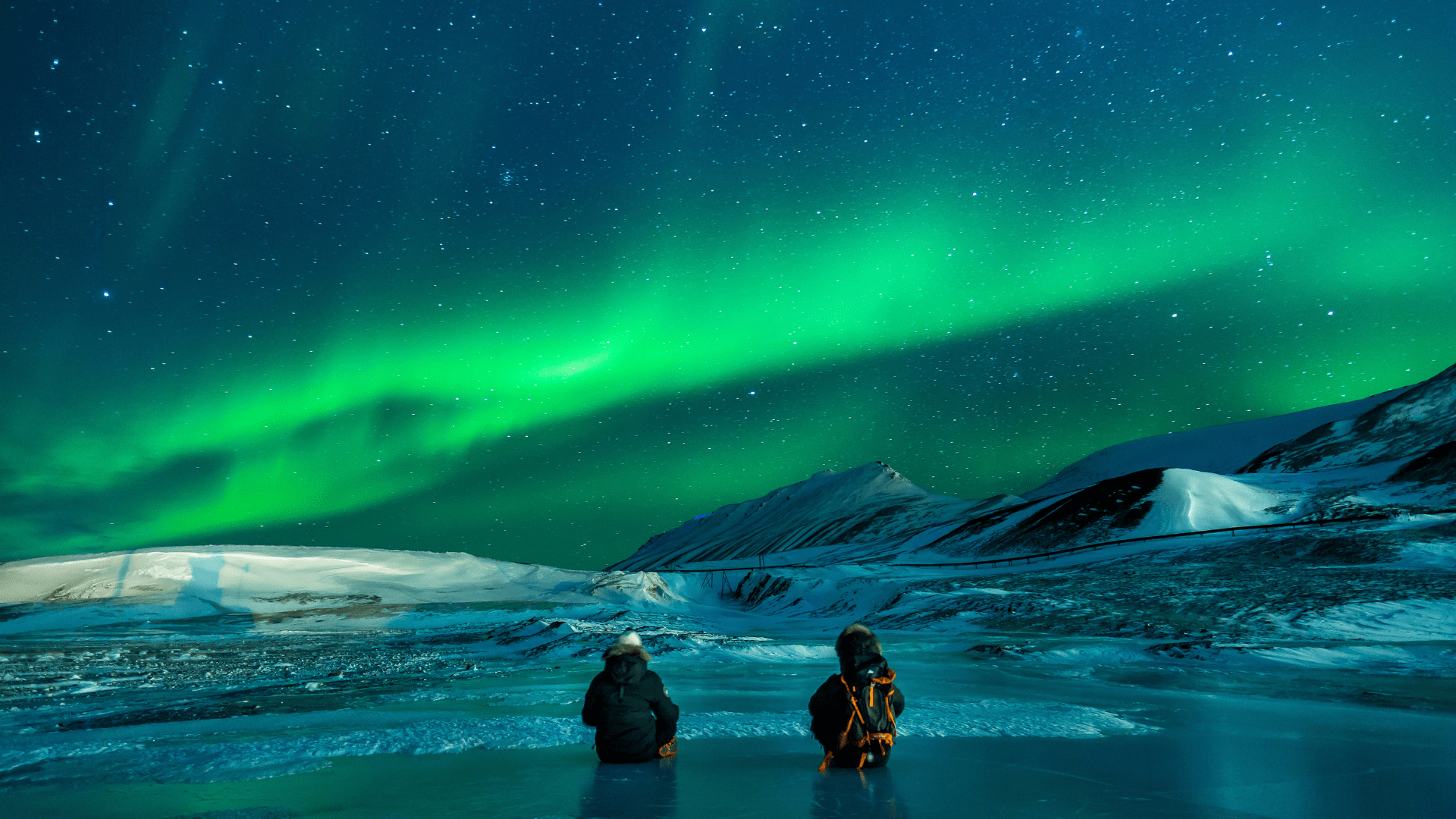
Alaska
In Alaska, it is illegal to use any forward looking infrared device, which includes thermal imaging devices, for the purpose of spotting or locating game with the use of a camera or any other sensory device that communicates wirelessly. This prohibition extends to a range of other electronically enhanced optical devices when used in hunting activities.

Arizona
In Arizona, the use of thermal imaging devices is illegal when attached to a firearm for the purpose of hunting. This includes any electronic night vision equipment, light-gathering devices, and thermal imaging devices that project visible light. However, there are exceptions for devices like laser range finders that project non-visible light, as well as scopes with self-illuminating reticles and fiber optic sights that do not cast visible light onto an animal.

Arkansas
In Arkansas, thermal imaging devices are legal for civilian use but have specific restrictions when it comes to hunting. They are permissible for hunting feral hogs, and they can also be used to hunt raccoons as long as they are used in conjunction with a hunting dog
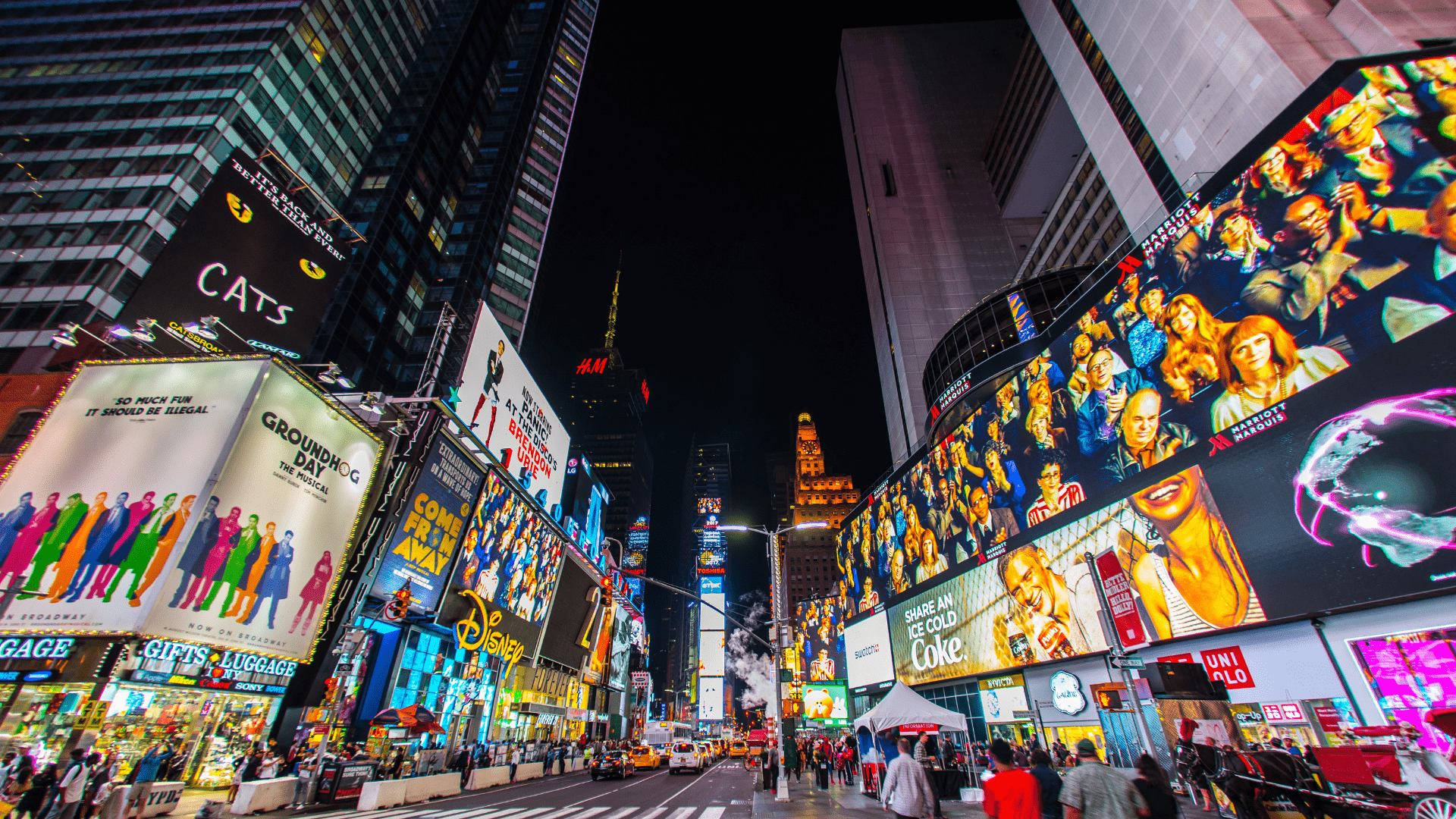
California
In California, the law strictly prohibits the use of all night vision or thermal imaging devices that are attached to firearms. This ban is in place regardless of whether the devices are used for hunting, surveillance, or any other purpose that involves attaching the device to a firearm. The legalities around the possession and use of such devices for other purposes not involving firearms may vary, and it’s important for individuals to consult specific state regulations and local laws for the most accurate and current information.
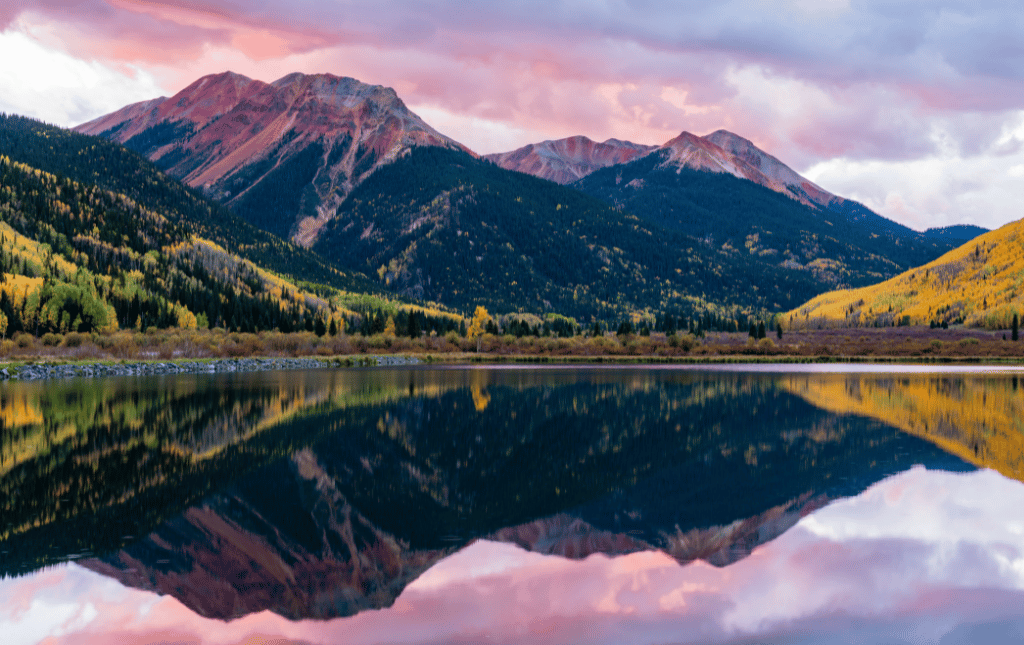
Colorado
Colorado Thermal Imaging and Hunting Regulations:
In Colorado, the use of thermal imaging devices for hunting is complex and depends on various factors. It’s illegal to use thermal imaging devices as an aid in hunting or taking wildlife outside legal hunting hours. Night vision or thermal imaging devices are prohibited at any time in the state. However, there are exceptions, such as for hunting coyotes, foxes, and other small game species that do not have a possession or bag limit. But it’s important to note that the use of thermal scopes is strictly prohibited for hunting big game species like elk, deer, and moose

Connecticut
Thermal Imaging Surveillance and Hunting Laws in Connecticut
In Connecticut, thermal imaging devices are legal but restricted to certain dates for hunting raccoons and possums. For surveillance, the use of thermal imaging to monitor a home is considered a search under the Fourth Amendment and requires a warrant. The state’s “Peeping Tom law” prohibits electronic observation or recording in private without consent, and businesses are forbidden from monitoring employees in private areas or recording sensitive negotiations. Breaking these laws can result in heavy fines and imprisonment, emphasizing the need for adherence to privacy and surveillance regulations.

Delaware
Florida Thermal Surveillance and Hunting Laws
In Delaware, thermal imaging devices are legal provided they don’t cast infrared light and aren’t used with a light at night, with restrictions on artificial light during hunting. Delaware law prohibits recording or observing in private without consent, particularly in areas where privacy is expected, such as changing areas. Violations can lead to severe penalties, including misdemeanors with fines and jail time, or felonies for serious breaches like illegal wiretapping. Surveillance laws also consider the expectation of privacy, making it illegal to use devices for secret observation in private areas, with certain allowances for cameras in public places where privacy isn’t expected.
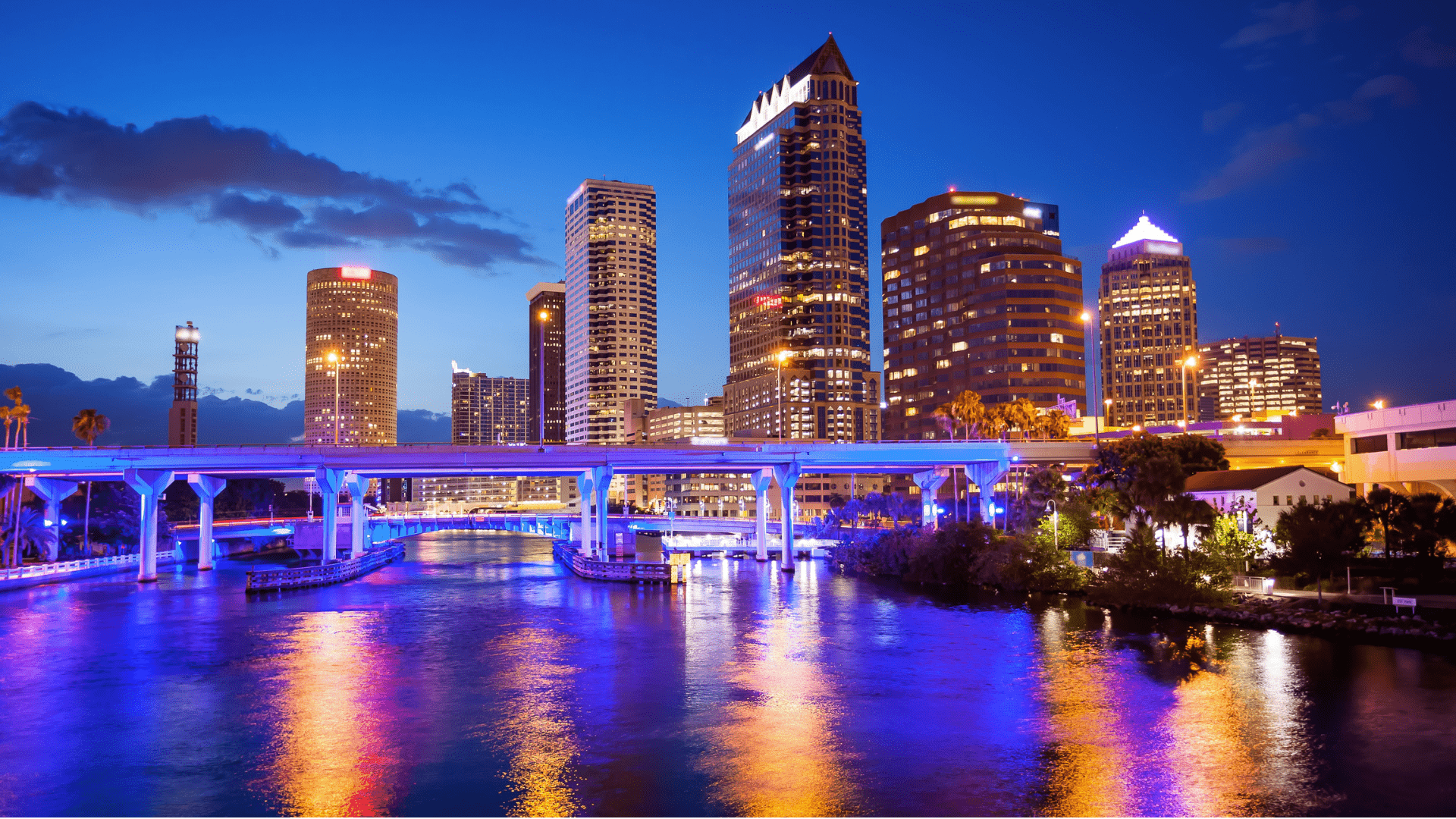
Florida
Florida Thermal Imaging Surveillance and Hunting Laws and Regulations
In Florida, thermal imaging devices are generally legal, with restrictions on light emission for hunting specific animals like hogs, coyotes, raccoons, and possums. Surveillance laws in the state are not overly restrictive, allowing the installation of security cameras as long as they do not infringe on anyone’s privacy, particularly in sensitive areas such as bathrooms, locker rooms, and changing rooms.
The principle of reasonable expectation of privacy is upheld in Florida law, which prohibits voyeurism – the installation of cameras that intentionally violate this principle is a serious felony offense. Additionally, Florida’s conspicuous notice law requires businesses to inform people visibly if they are being recorded.
As a two-party consent state, it’s illegal in Florida to record conversations without the consent of all parties involved, especially if the recordings are intended for commercial use. This extends to security cameras with audio recording capabilities, which require written consent from those being recorded

Georgia
Georgia Thermal Imaging Surveillance and Hunting Laws and Regulations
In Georgia, thermal imaging devices are unrestricted for use, reflecting a permissive stance on such technology. Surveillance laws permit the monitoring of employees for legitimate business reasons while prohibiting electronic surveillance in private areas where individuals expect privacy. Property owners are allowed to use surveillance devices in areas lacking an expectation of privacy for crime prevention. Georgia operates under a one-party consent rule for audio recordings, which means that recording conversations is legal as long as one person involved consents. Violating privacy laws can result in felony charges with significant penalties.

Hawaii
Hawaii Thermal Imaging Surveillance and Hunting Laws and Regulations
In Hawaii, the use of thermal imaging devices is illegal due to the prohibition of night hunting. This aligns with Hawaii’s stringent conservation laws and efforts to protect wildlife. Regarding surveillance, although specific state laws were not accessed, general U.S. constitutional protections apply, including the Fourth Amendment, which protects against unreasonable searches and seizures.
This implies that surveillance, including the use of thermal imaging technology in a manner that could invade reasonable expectations of privacy without a warrant, could be subject to legal scrutiny. The state likely upholds privacy rights in both residential and public places, reflecting a cautious approach to the use of surveillance technology.

Idaho
Idaho Thermal Imaging Surveillance and Hunting Laws and Regulations
In Idaho, thermal imaging is legal for use as long as there is no emitted light, which allows for a wide range of applications, including night hunting without artificial light. Surveillance laws in the state, while not specifically addressing security cameras, fall under the general privacy laws.
Video surveillance in public places is typically allowed without consent, but audio recordings require at least one person’s consent who may be recorded. Video voyeurism, or recording someone in a place where they have a reasonable expectation of privacy, is a criminal offense. Violating single-party consent or video voyeurism laws can result in felony charges, with potential fines and imprisonment.

Illinois
Illinois Thermal Imaging Surveillance and Hunting Laws and Regulations
In Illinois, thermal imaging devices are legal for hunting certain animals such as red fox, gray fox, bobcat, raccoons, opossums, coyote, and striped skunk during specified seasons, although night hunting legality may vary by region. Illinois surveillance laws require consent from all parties being recorded by a camera, adhering to a two-party consent model particularly for audio recording.
Cameras must be visible to those being recorded, and any footage captured is intended solely for security purposes. Pointing a camera into a neighbor’s home or recording in private areas without consent is illegal. Additionally, Illinois law prohibits recording or transmitting video through someone’s clothing without permission. Violations of these eavesdropping laws are considered felonies, with penalties ranging from fines to imprisonment depending on the offense’s severity.

Indiana
Indiana Thermal Imaging Surveillance and Hunting Laws and Regulations
Hunting
In Indiana, the use of thermal imaging for hunting is legal only under specific conditions. A continuously burning light that is visible from at least 500 feet away must be among the hunters when using thermal imaging equipment. However, it’s important to note that the Indiana Administrative Code specifically prohibits the use of infrared sensors to locate, take, or retrieve deer.
Surveillance and General Use
For surveillance purposes, Indiana law is strict regarding the use of cameras and electronic surveillance equipment. It is a Class A misdemeanor to knowingly or intentionally place such equipment on private property without the consent of the owner or tenant.
Additionally, the Supreme Court case of Kyllo v. U.S. has implications for the use of thermal imaging by law enforcement. The court held that the use of thermal imaging devices to detect heat levels inside a home constitutes a search under the Fourth Amendment. Thus, law enforcement officers are required to obtain a search warrant prior to using thermal imaging devices for surveillance in situations where the device is not in general public use and details of a home are otherwise unknowable without physical intrusion.

Iowa
Hunting
In Iowa, it is legal to use thermal and night vision equipment for hunting as long as the devices do not emit visible light. This regulation facilitates the use of such equipment for various types of hunting, ensuring that hunters can use advanced technology without creating a visible disturbance.
Surveillance and General Use
Regarding surveillance, Iowa law stipulates that placing or using a camera or electronic surveillance device that transmits or records images or data on trespassed property is an aggravated misdemeanor for a first offense and a class “D” felony for subsequent offenses. This means that any use of thermal imaging for surveillance must respect property rights and cannot involve trespassing.
General use of thermal imaging devices is subject to discussion and debate, particularly in the context of law enforcement. While law enforcement sees the benefits of thermal imaging for activities such as apprehending criminals, critics argue that it may infringe on Fourth Amendment rights. The technology must be used in a way that is cognizant of citizens’ privacy rights, and typically, probable cause and a warrant would be required for its use in private areas. In non-law enforcement contexts, such as by fire departments, thermal imaging is used for search and rescue operations and to identify heat sources in fire situations, demonstrating its utility in public safety applications.

Kansas
Hunting
In Kansas, thermal imaging equipment is legal for hunting purposes, specifically for hunting coyotes. Hunters may use artificial light, scopes, and equipment that amplify visible light, along with thermal imaging scopes and thermal imaging equipment from January 1 through March 31. However, the use of this equipment is prohibited on department lands and waters, including Walk-In Hunting Areas (WIHA) and Improved WIHA.
Surveillance and General Use
Surveillance in Kansas must respect individuals’ reasonable expectation of privacy. It is unlawful to observe, photograph, or record someone without their knowledge or consent in areas where they expect privacy. This includes private places like homes or private areas within businesses, but not public places where there is typically no expectation of privacy.
Kansas is also a one-party consent state regarding the recording of conversations. This means that if you are a party to the conversation, you can legally record it without the consent of the other parties involved. However, security cameras that record audio require consent if the recorded conversations are to be used for purposes beyond personal use.
Violating Kansas’s privacy laws regarding recording can lead to serious legal repercussions, including misdemeanor or felony charges, with the severity of the punishment increasing with repeated offenses.

Kentucky
Hunting
In Kentucky, it is legal to use thermal imaging equipment for hunting coyotes, but only with shotguns. While coyotes can be hunted year-round, thermal and other artificial illumination can only be used from December 1st through May 31st.
Surveillance and General Use
Kentucky’s laws regarding surveillance with cameras, which would include thermal imaging cameras, do not have specific provisions for security cameras but are governed by the state’s privacy laws and regulations. It is generally legal to install security cameras in public places without consent. However, if recording audio, the express consent of the individuals potentially recorded is required.
The state follows a single-party consent law for recording conversations, meaning you can record a conversation if you’re a party to it or with the consent of one of the participants. It is illegal to observe, record, or broadcast in private places without the permission of the individuals entitled to privacy. Violations of these privacy laws, such as using a hidden camera to invade someone’s privacy, could result in misdemeanor or felony charges, with penalties ranging from fines to imprisonment.

Louisiana
Hunting
In Louisiana, thermal imaging is legal for hunting hogs and coyotes. There are no specific time constraints mentioned for the usage of thermal imaging equipment in hunting these animals.
Surveillance and General Use
It is unlawful in Louisiana to record someone without their knowledge or consent in areas where they have a reasonable expectation of privacy. Louisiana is a one-party consent state for recording conversations, meaning you can legally record a conversation if you are part of it. However, security camera footage intended for use beyond personal reasons requires the consent of all parties involved. Video voyeurism and illegal interception of communications are felony offenses with severe penalties including fines and imprisonment.

Maine
Hunting
In Maine, thermal imaging is legal for the hunting of raccoons and coyotes. Raccoons may only be hunted at night with the use of a dog and a firearm larger than .22LR caliber. Coyote hunting at night is permitted from December 16th to August 31st, provided that a calling device is used.
Surveillance and General Use
Maine’s laws restrict visual surveillance in places where individuals have a reasonable expectation of privacy, such as homes or offices. These laws apply to all forms of surveillance, including the use of thermal imaging cameras. It is critical to ensure that such cameras are not installed in private spaces like bathrooms, dressing rooms, or locker rooms to avoid invasion of privacy charges.
Maine is also recognized as a two-party consent state, meaning that all participants in a conversation must consent to its recording. This extends to audio recording by security cameras; therefore, every individual being recorded must be aware of and agree to the recording. Violating Maine’s privacy laws can result in significant penalties, including fines and jail time, with increased severity for subsequent offenses.
Source 1

Maryland
Hunting
In Maryland, the use of thermal imaging for hunting is legal as long as the artificial illumination device does not emit visible light. This regulation allows for the nighttime hunting of coyotes, foxes, opossums, or raccoons during open season with the assistance of a dog and light.
Surveillance and General Use
For surveillance, Maryland law differentiates between audio and video recording. Audio recording laws in Maryland are strict; it is one of the twelve states that require all-party consent for audio recordings. Most types of audio recordings are illegal unless all parties are aware that the recording is taking place. In some cases, such as a phone call, implied consent may be adequate, but recording without explicit knowledge and consent in other settings is a felony that could lead to imprisonment and fines.
Video surveillance is treated differently. It is legal to use surveillance video in your home, including on your porch or lawn, without consent from the parties being recorded. However, hidden surveillance cameras are not permitted in places where people have an expectation of privacy, like bathrooms or dressing rooms. Deliberate recording in private residences or private places without consent is unlawful. It’s crucial to conduct video surveillance in compliance with these regulations to avoid potential legal issues.

Massachusetts
Hunting
In Massachusetts, thermal imaging for hunting is legal as long as there is no emitted visible light. Night hunting hours are specified from half an hour after sunset to midnight.
Surveillance and General Use
The laws in Massachusetts are quite specific when it comes to surveillance, balancing security needs against privacy rights. It is legal to install security cameras in both residential homes and businesses. However, when it comes to audio recording, the state requires two-party consent, which means all parties being recorded must provide consent. This is particularly pertinent when the surveillance includes audio recording capabilities.
Violating the two-party consent law, especially by covertly recording conversations, can lead to severe legal consequences, including fines and imprisonment. Additionally, Massachusetts law prohibits cameras in any areas where someone would expect privacy, such as bathrooms or bedrooms. Video voyeurism is a criminal offense and can lead to fines and imprisonment.
For businesses, while it is legal to install security cameras, signage must clearly indicate that audio recording may be part of the surveillance, and consent must be obtained from all parties involved. If there’s suspicion of a violation of these laws, complaints can be filed with local police or the Attorney General’s office.

Michigan
Hunting
In Michigan, thermal imaging is legal to use during legal nighttime hours for hunting gray fox, red fox, raccoons, opossums, and coyotes.
Surveillance and General Use
Michigan has a comprehensive legal framework governing surveillance activities for both law enforcement and private parties. The Michigan Penal Code prohibits unauthorized interception or disclosure of private conversations. The Video Surveillance Act regulates video surveillance cameras, requiring conspicuous notice and consent for the use of video footage.
Law enforcement is permitted to use wiretaps and electronic surveillance but only with a court-issued warrant demonstrating probable cause. Video surveillance cameras are utilized by police departments in public areas, adhering to constitutional standards and respecting the reasonable expectation of privacy.
Private surveillance plays a significant role in Michigan. Employers have the right to monitor activities within the workplace without violating the reasonable expectation of privacy, and homeowners can install security cameras around their homes. However, they must provide conspicuous notice when surveillance cameras may capture activities beyond their property.
Emerging technologies like facial recognition and drones are subject to ongoing legal and ethical debate in Michigan. Currently, the use of drones for surveillance by law enforcement without a warrant is restricted, except in emergency situations or with specific legislative exceptions.

Minnesota
Hunting
In Minnesota, according to section B.086(a), individuals are not allowed to possess night vision or thermal imaging equipment while hunting or having in possession any hunting implements like firearms or bows. This restriction aims to ensure fairness and safety during hunting activities.
However, there are certain exceptions to this rule as outlined in sections B.086(b) to B.086(e), such as when the firearm or bow is properly encased and stored in a vehicle, or for certain personnel like peace officers, military personnel, or individuals hunting coyote or fox under specific regulations.
Surveillance and General Use
Minnesota law makes it a gross misdemeanor to surreptitiously gaze, stare, peep, or use any device for observing, photographing, recording, amplifying, or broadcasting through any aperture of a dwelling without consent and with intent to intrude upon the privacy of the occupants. This applies to any place where a reasonable person would have an expectation of privacy. Violations involving minors or after previous convictions can elevate the offense to a felony, potentially resulting in imprisonment and fines

Mississippi
Hunting
In Mississippi, it is against the law to hunt, take, or kill a deer at night using any kind of artificial light, including light amplifying devices and thermal or infrared imaging devices. Engaging in such activities is considered a Class I violation, carrying significant fines and possible forfeiture of hunting privileges for a period of time.
Surveillance and General Use for Businesses
Mississippi law protects individual privacy by criminalizing the secret recording or observation of someone in places where privacy is expected, such as bathrooms, changing rooms, and bedrooms. For businesses, it’s important to avoid placing cameras in areas where employees expect privacy. This includes restrooms, locker rooms, and break rooms. Additionally, businesses must avoid covert recordings, especially of private conversations, as Mississippi’s eavesdropping laws require consent for such activities. If audio is being captured by cameras, at least one party in the conversation must be aware. Employers are reminded to have clear signage in areas where cameras are active to both build trust and serve as a legal safeguard.

Missouri
Hunting
In Missouri, regulations have been updated to allow the use of thermal, night vision, or infrared devices without prior approval for hunting invasive species like feral hogs. Landowners and their representatives can use these devices to kill feral hogs on their property at any time of the year. Additionally, from February 1 through March 31, properly licensed hunters can use artificial light, night vision, infrared, or thermal imagery equipment to pursue and take coyotes.
Surveillance and General Use for Businesses
Missouri law allows businesses to place video cameras in public locations, balancing individual privacy with the need for businesses to protect their property. However, the state does regulate and limit the locations and circumstances of video recording to prevent privacy violations. Improper video surveillance, particularly if it intercepts oral communication, is punishable as illegal wiretapping.
Businesses must avoid placing cameras in locations where there is a reasonable expectation of privacy. Public areas, especially in urban environments, are generally considered acceptable for video surveillance. Violations of these privacy regulations may lead to criminal prosecution for invasion of privacy, which can be a misdemeanor or a felony depending on the severity and circumstances, including if the recordings are disseminated.
Missouri is a one-party consent state for audio recordings, meaning at least one person involved in the conversation must consent to the recording. Unauthorized audio recording is considered illegal wiretapping and can result in felony charges and civil suits

Montana
In Montana, wolves can be hunted on private lands day or night, using artificial light, night vision, or thermal imaging. Electronic calls and baiting are allowed for wolf hunting, with specific baiting restrictions in Lynx Protection Zones.
For other predators and non-game species, night hunting with night vision and thermal imaging is permitted only on private lands. Predators include coyote, weasel, skunks, and non-game species encompass badger, raccoon, red fox, hares, rabbits, among others. Night hunting on public lands is prohibited
Surveillance and General Use for Businesses
Montana has a set of laws that govern the use of surveillance, including thermal imaging, particularly in the context of businesses:
- Eavesdropping Laws: Montana law is stringent on privacy, particularly with audio interception. Businesses using cameras with audio recording capabilities must obtain explicit consent from those being recorded, as recording without knowledge or consent is illegal.
- Expectation of Privacy: Cameras should not be installed in private places where there is a reasonable expectation of privacy, such as bathrooms and dressing rooms.
- Notification: While not legally mandated, it is best practice for businesses in Montana to use signage to inform individuals that they are under surveillance, especially when recording audio.
- Consent Requirements: As Montana is a two-party consent state, all parties must agree before any recording (audio or video) can take place. For businesses, this means obtaining explicit consent from employees for audio recording.
- Data Storage and Sharing: There are no specific laws on storing security footage, but general privacy laws must be observed. Businesses must avoid unnecessary sharing of footage and ensure that stored footage is secure.
- Dos and Don’ts: Businesses should communicate to employees the presence and purpose of cameras, particularly if audio recording is enabled. Cameras should be used in common areas like hallways and entry points. Cameras should not be installed in personal spaces or used for purposes other than those stated, such as monitoring employee productivity without consent.

Nebraska
Hunting with Thermal Imaging in Nebraska
In Nebraska, the use of thermal imaging equipment for hunting is legal for certain types of game. Specifically, it is permitted for hunting furbearers and coyotes. This means that hunters targeting these species can utilize thermal imaging technology to locate animals based on their body heat, which can be particularly useful during night hunts or in conditions with low visibility.
Surveillance and General Use of Thermal Imaging in Nebraska
In Nebraska, law enforcement uses thermal imaging for various operations such as locating fugitives or missing persons, and evidence retrieval by detecting body heat signatures. While thermal imaging is utilized in public spaces without a warrant, a Supreme Court ruling mandates that officers obtain a search warrant for its use in searching a suspect’s home, akin to traditional search requirements. Drones equipped with thermal imaging are also deployed for search and rescue, crime scene analysis, and other law enforcement activities, enhancing their capabilities while respecting privacy laws.

Nevada
Hunting
In Nevada, it is illegal to possess or use thermal imaging devices while hunting or taking any game mammal or game bird, or while locating game mammals or game birds for the purpose of hunting or taking. This regulation encompasses all electronic night-vision equipment, electronically enhanced light-gathering devices, thermal imaging devices, and infrared night-vision equipment
Surveillance and General Use
Regarding surveillance and general use in Nevada, several laws regulate the installation and use of surveillance equipment. It is prohibited to install or use any device to eavesdrop or observe any private area without the subject’s consent. This includes capturing images in places where individuals have a reasonable expectation of privacy, such as bedrooms or dressing rooms, without their consent. Additionally, there are specific rules governing the use of surveillance equipment by government entities, the capture and storage of license plate data, the security and privacy of personal information, and the protection against unauthorized access or hacking of computer systems linked to surveillance equipment

New Hampshire
Hunting
In New Hampshire, thermal imaging devices are allowed for hunting purposes. Specifically, they can be used for night hunting of coyotes, which is permissible from January 1st to March 31st. Although artificial lights are permitted during this activity, they cannot be used from a motor vehicle or Off-Highway Recreational Vehicle (OHRV). To legally hunt coyotes at night, hunters must have written permission from the landowner, which needs to be filed with the local conservation officer.
Surveillance and General Use
When it comes to surveillance and general use, New Hampshire does not have specific laws regulating the use of infrared or thermal imaging cameras. These devices can see into cars or buildings to identify people and other objects. However, the Supreme Court decision in Kyllo v. United States mandates that law enforcement must obtain a warrant to use any technology not widely available to the public to view into a person’s home. This ruling places a limitation on the use of such technology for surveillance purposes in residential settings without proper legal authorization.

New Jersey
Hunting
In New Jersey, thermal imaging is not explicitly prohibited for hunting purposes. Night hunting is permissible during the special fox and coyote permit season, which typically runs from January 1 to March 15th, and portable lights can be used. However, laser sights or rifles are not allowed during night hunting. The use of night vision equipment, which includes thermal imaging, is not listed as a prohibited device as per the 2010 NJ Fish & Wildlife Digest.
Surveillance and General Use
Regarding surveillance, New Jersey law allows homeowners to install security cameras provided they adhere to the state’s surveillance laws, ensuring that no recording takes place in areas where there is a reasonable expectation of privacy. In cases where audio is being recorded, at least one party must be aware of the recording. For businesses, the use of video surveillance is also permitted, but transparency is crucial. Businesses must inform employees and customers about the surveillance, typically through clear signage, and avoid the use of hidden cameras. The emphasis is on respecting individual privacy while using surveillance equipment.

New Mexico
Hunting
In New Mexico, the use of thermal imaging technology for hunting is not permitted. The state’s regulations ban electronic devices and equipment such as GPS, night vision, and thermal imaging gadgets during hunting seasons. These devices are considered to give hunters an unfair advantage and could potentially lead to unethical practices or unnecessary killing of game animals. Violating these regulations can result in significant fines and the revocation of hunting permits
Surveillance and General Use
Regarding surveillance and general use, New Mexico does not have specific laws addressing security cameras, but the use and installation of these cameras are subject to state privacy laws. The state operates under a single-party consent rule for audio recordings, meaning that recording a conversation legally requires the consent of at least one party involved. Video recording is generally legal; however, it is not legal to record in areas where there is a reasonable expectation of privacy, such as through neighbors’ windows or in private yards. The laws also regulate the use of cameras in both business and residential settings, with recommendations for best practices like visible signage. Additionally, Peeping Tom laws, trespass laws, and harassment or stalking laws in New Mexico can impact the use of cameras for surveillance

New York
Hunting
In New York, the use of thermal imaging devices is legal for hunting during legal nighttime hours. This legality applies specifically for the hunting of certain animals which include gray and red fox, bobcats, coyotes, raccoons, skunk, mink, and opossums.
Surveillance and General Use
Video recording in New York State is lawful in the workplace, but cameras must be conspicuous, and notices about surveillance should be clearly visible to all individuals within the area. It is illegal to record individuals in private areas such as bedrooms, restrooms, locker rooms, or changing areas unless a court order is obtained. Additionally, any surveillance that occurs without the knowledge or consent of the individual, where they have a reasonable expectation of privacy, is considered unlawful surveillance in the second degree, which is a class E felony. This offense can result in up to four years in prison and a fine of up to $5,000.

North Carolina
Hunting
In North Carolina, the use of thermal imaging for hunting is legal and not subject to any restrictions. This allows hunters to employ thermal imaging technology to locate game during lawful hunting activities.
Surveillance and General Use
Regarding surveillance, North Carolina law prohibits the use of unmanned aircraft systems, which includes drones equipped with thermal imaging, for surveillance of individuals or their property without consent. Exceptions are in place for law enforcement under specific conditions, such as obtaining a search warrant or in emergency situations to prevent imminent danger or damage. For general use, commercial and private unmanned aircraft systems can be equipped with infrared or other thermal imaging technology, but only for purposes such as scientific research, mapping, or agricultural evaluation.

North Dakota
Hunting
In North Dakota, thermal imaging devices are legal to use for hunting certain animals, specifically predators like coyotes and foxes. This facilitates hunters in tracking these animals, which are often more active during the night when it’s more challenging to spot them with traditional methods.
Surveillance and General Use
The use of thermal imaging devices for surveillance purposes, particularly in law enforcement, is subject to constitutional limitations. Based on the Supreme Court ruling in Kyllo v. United States, any form of surveillance that employs thermal imaging to detect heat patterns in or around a home is considered a search under the Fourth Amendment. Therefore, it requires a search warrant to be conducted legally, even if the observation is from a public vantage point. This ruling has set a precedent that protects the privacy of individuals against the use of such advanced surveillance technology without proper authorization.

Ohio
Hunting
In Ohio, thermal imaging devices are legal for hunting purposes. They can be used during legal hunting hours for the tracking and harvesting of various species including fox, hogs, raccoons, opossums, groundhogs, coyotes, weasels, and skunks. The use of these devices is aligned with the state’s regulations for fair chase and ethical hunting practices.
Surveillance and General Use
For surveillance and general use, the legality of thermal imaging in Ohio is influenced by federal law, specifically the Fourth Amendment. According to the Supreme Court case Kyllo v. United States, the use of thermal imaging technology to monitor heat radiation in or around a person’s home without a warrant is unconstitutional. This applies even when the monitoring is done from a public vantage point. This ruling emphasizes the expectation of privacy and the protections against unreasonable searches, which would include unwarranted surveillance using thermal imaging technology.

Oklahoma
Hunting
In Oklahoma, the use of thermal imaging for hunting is legal specifically for pursuing coyotes and feral hogs. This means hunters can utilize thermal imaging devices to locate and track these animals, which are often hunted for population control and to mitigate their impact on agriculture and native wildlife.
Surveillance and General Use
Regarding surveillance, Oklahoma’s laws are structured around the Security of Communications Act, which does not explicitly address video surveillance equipment but does regulate the interception of oral communications through electronic devices. In public spaces like retail shops and streets, video surveillance is both legal and common. In private settings where there is an expectation of privacy, consent is required for legal surveillance. Law enforcement and third parties working with them can conduct surveillance with at least one party’s consent, and certain service providers are permitted to perform surveillance for quality control purposes without fear of prosecution.

Oregon
Hunting
In Oregon, the use of thermal imaging for hunting is illegal. All night vision and thermal imaging devices are banned for this purpose. This includes any form of artificial light or electronic surveillance equipment to aid in the hunting of wildlife, ensuring fair chase principles are adhered to and maintaining the state’s hunting regulations.
Surveillance and General Use
For surveillance purposes, especially regarding homes, the use of thermal imaging technology is subject to constitutional scrutiny. The Supreme Court of the United States, in the case of Kyllo v. United States, ruled that thermal imaging of a home constitutes a “search” under the Fourth Amendment. Therefore, such surveillance conducted without a search warrant is unconstitutional. This applies to any form of heat radiation monitoring in or around a person’s home, even if conducted from a public vantage point, protecting the reasonable expectation of privacy against advanced surveillance technologies.

Pennsylvania
Hunting
In Pennsylvania, hunters of predatory animals are permitted to use thermal and night vision equipment following the passage of House Bill 1188. This legislation allows the use of handheld and sporting-arm mounted night-vision and infrared (thermal) optics for hunting furbearers. There are no restrictions on the use of thermal imaging for hunting within the state, making it legal for hunters to employ these technologies.
Surveillance and General Use
As for surveillance, the use of thermal imaging devices to monitor heat radiation in or around a person’s home is considered a search under the Fourth Amendment, according to the Supreme Court ruling in Kyllo v. United States. Therefore, using such devices for surveillance purposes without a search warrant is unconstitutional, even when the observation is from a public vantage point. This ruling underscores the expectation of privacy in one’s home against the use of advanced surveillance technologies.

Rhode Island
Hunting with Thermal Imaging in Rhode Island
In Rhode Island, the use of thermal imaging for hunting is legal. However, restrictions apply concerning the type of game that can be hunted at night, with only raccoons being allowed as legal targets during nocturnal hours. Furthermore, the state imposes limitations on the type of firearms that can be used; specifically, rifles are restricted to calibers of .229 and lower and are only permissible for hunting small game.
Surveillance and General Use of Thermal Imaging in Rhode Island
When it comes to surveillance, Rhode Island law strictly regulates the usage of imaging devices to respect personal privacy. It is illegal to use, install, or permit the installation of imaging devices to capture or record visual images of a person’s private areas without their knowledge and consent, especially in situations where individuals have a reasonable expectation of privacy. This includes intentions of video voyeurism, such as capturing images for sexual gratification without consent, which is a criminal offense in Rhode Island. Using a camera to record someone in a private setting, like inside their home or in a changing room, is against the law.

South Carolina
Hunting
In South Carolina, the use of thermal imaging technology is legal for hunting purposes. Specifically, it is permitted for hunting hogs, coyotes, and armadillos on any registered property. This opens up a method for hunters to engage in their activities during times when these animals are most active, such as during the night.
Surveillance and General Use
For surveillance, thermal imaging devices are utilized by law enforcement in South Carolina. These devices, which do not require visible light and only detect heat signatures, can be used to observe potential criminal activity from a distance, even in low-light conditions. The information gathered can be used to build reasonable suspicion or probable cause and can be recorded for evidence or to justify further interaction with a suspect. Furthermore, South Carolina has established guidelines and policies for the use of body-worn cameras by law enforcement, which can include thermal imaging capabilities. These guidelines regulate when and how such devices should be used, data retention, and access to recorded data. Data recorded by body-worn cameras is not considered a public record subject to disclosure under the Freedom of Information Act, though it can be released at the discretion of law enforcement agencies for legitimate criminal justice purposes.

South Dakota
Hunting
In South Dakota, the use of thermal imaging for hunting is legal, but there are specific conditions that must be adhered to. It is only permitted on private property, and the landowner is allowed to have a maximum of two guests to assist. The animals that can be hunted with the aid of thermal or night vision include jackrabbits, coyotes, beaver, foxes, raccoons, opossums, badgers, skunks, and rodents. The hunters are restricted to using a shotgun or a rifle with a caliber smaller than .225. This regulation ensures that thermal imaging is used responsibly and ethically in hunting practices within the state.
Surveillance and General Use
Regarding surveillance, the use of thermal imaging devices in South Dakota is subject to the protections provided under the Fourth Amendment of the U.S. Constitution. According to a precedent set by the U.S. Supreme Court in Kyllo v. United States, the use of thermal imaging to monitor heat radiation in or around a person’s home without their knowledge constitutes a “search.” Consequently, such surveillance is unconstitutional unless conducted with a valid search warrant. This decision underscores the importance of privacy and the need for law enforcement to obtain a warrant before employing thermal imaging for surveillance purposes, especially when it involves potentially revealing details of a private home that would otherwise be inaccessible without physical intrusion.

Tennessee
Hunting
In Tennessee, it is illegal to utilize any electronic light amplifying night vision scope, thermal imaging device, or similar devices while in possession of a firearm or archery tackle between sunset and sunrise. This law is in place to prevent the use of artificial light capable of locating wildlife, which could give hunters an unfair advantage and potentially disrupt wildlife behavior.
Surveillance and General Use
For surveillance and general use in Tennessee, the law prohibits observing or photographing a person in places where they have a reasonable expectation of privacy without their consent. It is also illegal to intentionally photograph or record someone without their consent for the purpose of sexual arousal or gratification. When it comes to video surveillance that includes audio, at least one party involved in the conversation must consent to being recorded. Businesses should notify patrons and employees of surveillance, preferably with clear signage. Furthermore, using cameras to harass or intimidate someone, stalking with cameras, or installing cameras on someone else’s property without permission can lead to legal penalties.

Texas
Hunting with Thermal Imaging in Texas
In Texas, hunting with thermal scopes and night devices is permitted. The state recognizes the utility of such equipment in hunting, especially for controlling the population of feral hogs. Thermal imaging technology helps hunters quickly identify hogs through fog and scrub, locate wounded game, stay safe from predators by detecting them before an attack, reduce the time spent in searching for hogs, and improve the accuracy of shots.
Surveillance and General Use of Thermal Imaging in Texas
Texas law is specific about the application of video recording in various contexts. Invasive visual recording is a criminal offense under state law. In places like convalescent facilities, nursing facilities, or related institutions, authorized electronic monitoring can be requested, but it requires consent. Additionally, in the educational context, Texas requires school districts to conduct video and audio surveillance in certain special education classrooms upon request. When it comes to neighbors and security cameras, issues can arise regarding privacy, but generally, security cameras are commonplace and legal. In the workplace, surveillance practices are subject to privacy considerations, but video surveillance is commonly used and regulated.

Utah
Hunting
In Utah, using thermal imaging devices for hunting is regulated. The Utah Wildlife Board has established rules that prohibit the use of thermal imaging night vision devices during big game hunting seasons. Specifically, such devices are banned from being used to locate or attempt to locate any big game animals beginning 48 hours before the opening date of any big game hunt and continuing until 48 hours after the hunt ends.
Surveillance and General Use
For general surveillance, Utah law restricts the use of certain types of equipment that could be used for tracking wildlife. This includes trail cameras with capabilities that extend beyond simple image capturing, like those that can transmit images and footage in real-time. However, the restrictions primarily focus on preventing the use of such devices for hunting purposes, and there are exemptions for private landowners and agricultural operations monitoring their property.

Vermont
Hunting
In Vermont, the use of thermal imaging for hunting is legal. Thermal vision devices are permissible because they do not emit IR light, which is in line with the regulations governing hunting equipment in the state.
Surveillance and General Use
Vermont does not have a specific statute regarding surveillance, including the use of thermal imaging. The state’s supreme court has ruled that it is an invasion of privacy for law enforcement to record a conversation in someone’s home without a warrant, which indicates that there could be privacy considerations for surveillance. However, this does not directly address the broader legality of thermal imaging for general use, which appears to be unregulated.

Virginia
Hunting
In Virginia, thermal imaging devices are legal for hunting purposes. They can be used during legal nighttime hunting hours for specified animals, including bobcat, coyote, feral hog, fox, opossum, raccoon, and skunk.
Surveillance and General Use
For surveillance, Virginia law adheres to a one-party consent rule for audio recordings, meaning only one party involved in a conversation needs to consent to the recording for it to be legal. Video surveillance is legal when it is intended for security purposes, such as protecting property. However, recording both video and audio without the consent of the person being recorded is not permitted, and such recordings cannot be used as evidence in court if all parties were not aware of the recording.

Washington
Hunting
In Washington state, it is unlawful to hunt all big game with the aid of infrared night vision equipment or with laser sights that can project a beam onto the target while in possession or control of a firearm, bow and arrow, or crossbow. This regulation includes the use of thermal imaging devices which are often classified under infrared night vision equipment.
Surveillance and General Use
The use of thermal imaging devices for surveillance purposes, especially in residential contexts, has been scrutinized under the Fourth Amendment. The Supreme Court case Kyllo v. United States established that thermal imaging to monitor heat radiation around a person’s home is a form of search and thus unconstitutional without a search warrant. This ruling impacts how thermal imaging can be used for surveillance in general, emphasizing the need for a warrant to avoid unconstitutional searches.

West Virginia
Hunting with Thermal Imaging
In West Virginia, the use of thermal imaging equipment for hunting is legal, but with certain restrictions. Specifically, it is allowed for the hunting of coyote, fox, raccoon, skunk, and opossum. Hunters aiming to utilize this technology should be aware of any additional regulations that might apply to different species or hunting zones within the state.
Surveillance and General Use
Surveillance in West Virginia, including the use of thermal imaging, adheres to state and federal laws regarding privacy. It’s generally permissible to record or monitor using thermal imaging in public spaces where there is no reasonable expectation of privacy. However, it is illegal to record private activities in settings where individuals expect privacy without consent. Violation of these laws, such as recording a conversation you’re not a part of without at least one party’s consent or recording someone in a state of undress in a private setting, can lead to serious penalties, including fines and imprisonment.

Wisconsin
Hunting
In Wisconsin, it is legal to hunt with a thermal scope. These devices, which can create images from heat, are allowed for hunting various game animals, including coyotes and bears. While they enhance night hunting capabilities, users must adhere to all state and federal laws, obtain necessary licenses and permits, and practice ethical hunting. Regulations specify that thermal scopes may be used only in certain seasons, with specific firearms, and not on protected species. They cannot be used to hunt from a vehicle or a stationary position, and all fair chase and hunting hour regulations must be observed.
Surveillance and General Use
Surveillance in Wisconsin is governed by statutes that protect individual privacy. It is illegal to use devices that intrude on places where people expect privacy, such as homes or private areas within businesses. Outdoor surveillance should not capture footage of neighbors’ properties extensively. Audio recording without consent is prohibited, and signs should be posted if audio surveillance is in use. Use of cameras to harass or intimidate could be considered stalking, and unauthorized access to camera footage is a computer crime. Therefore, any surveillance, including with thermal imaging, must respect these laws to avoid legal consequences.

Wyoming
Hunting
In Wyoming, hunters are permitted to hunt predatory animals on public or state land at night using artificial light, which includes thermal and infrared imaging. This is overseen by the Wyoming Game and Fish Commission, which has the authority to set regulations regarding zones, areas, seasons, and methods for taking predatory animals with the use of artificial light. As regulations evolve, updates are provided by Game and Fish.
Surveillance and General Use
The use of thermal imaging devices for surveillance purposes, particularly around a person’s home, is restricted under the Fourth Amendment according to the Supreme Court’s ruling in Kyllo v. United States. This decision states that thermal imaging constitutes a “search” and, as such, requires a search warrant to be constitutional, even if the observation is conducted from a public vantage point. This ruling emphasizes the importance of the reasonable expectation of privacy and limits the use of such technology without proper legal authorization.
Countries Other Than U.S.
Night vision device (NVD) regulations can vary significantly from country to country. Here are summarys of some of the laws and regulations concerning the use and possession of night vision devices in various countries other than the U.S.
It’s essential to remember that this summary provides a general overview and might not capture all nuances and recent changes in each country’s laws.There are a plethora of export laws to export night vision products out of the U.S. Contact Us For More Information.
If you’re considering purchasing, using, or traveling with a night vision device, it’s always a good idea to consult local regulations or seek advice from legal experts in the specific country of interest.
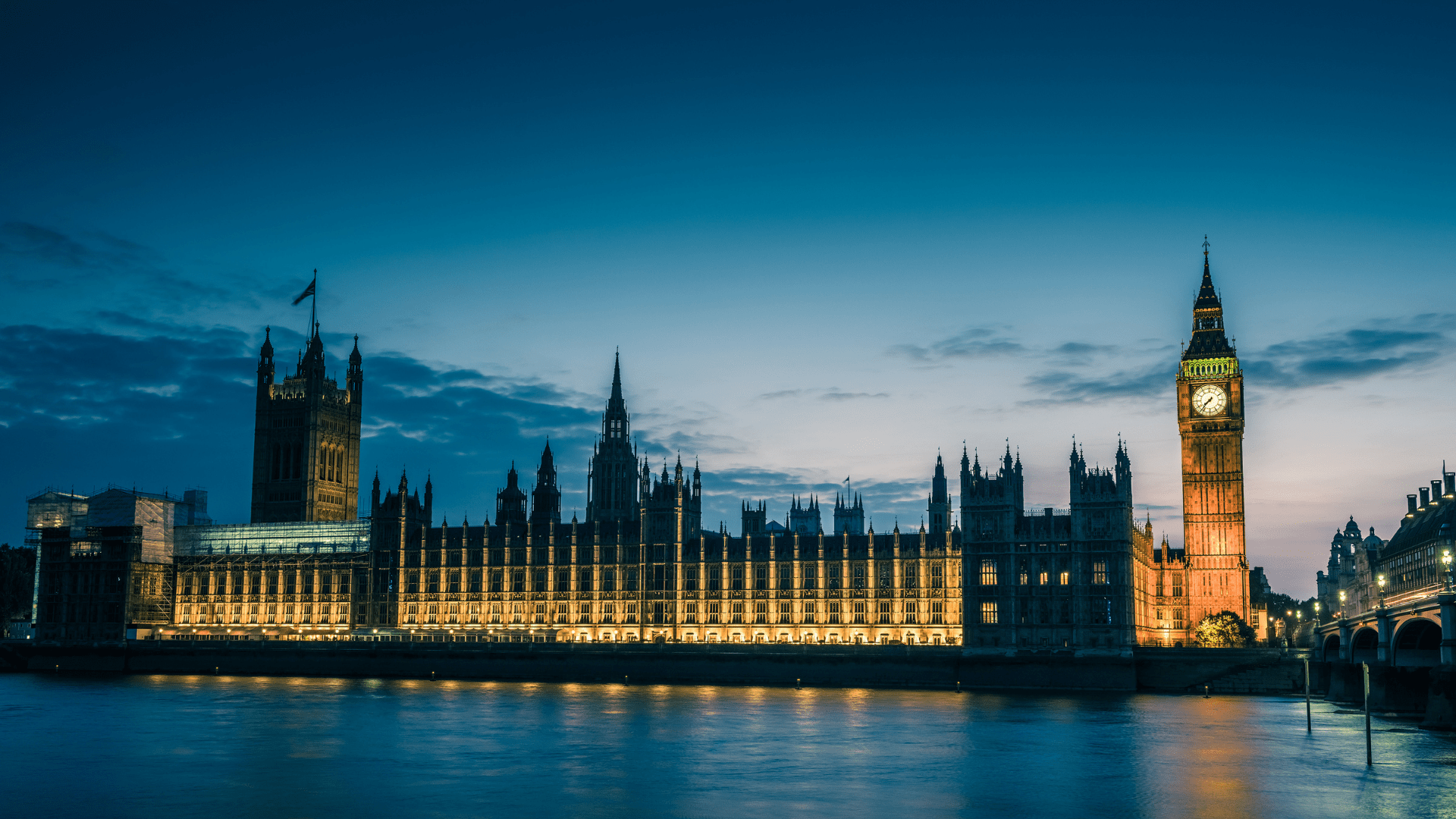
United Kingdom
Hunting
In the United Kingdom, thermal imaging scopes can be used legally when hunting with an air gun in England and Wales, as there are no restrictions on their use. However, hunting at night is prohibited, including the use of thermal imaging scopes to hunt deer after dark. The use of thermal imaging technology is widely accepted during the day, particularly at dawn and dusk, as it can detect minute temperature differences, enabling the detection of game without the need for visible light. It enhances the ability to locate targets effectively, but regulations require that hunting, especially deer stalking, must be conducted during daylight hours.
Surveillance and General Use
Thermal imaging technology has seen increased use in various settings within the UK, including airports, schools, workplaces, and retail spaces. The legal focus is not on the technology’s inherent legality but rather on its use in compliance with data protection laws. Concerns have been raised about unlawful uses of thermal imaging that could infringe upon data protection rights and potentially lead to more invasive surveillance practices. Organizations like Big Brother Watch have engaged in advocacy to ensure that the deployment of thermal imaging technology respects personal data rights and is implemented according to data protection laws. They’ve also pushed for necessary impact assessments before the use of such scanners. There have been successful efforts to curb the use of thermal imaging for surveillance purposes where it violated privacy expectations or lacked sufficient evidence for its necessity.

India
Hunting
In India, the use of thermal imaging for hunting is not explicitly detailed in the law. However, hunting itself is heavily regulated, with various wildlife protection laws in place that could implicitly cover the use of such technology. For example, the Wildlife Protection Act of 1972, which is the primary statute that provides protection to wildlife in India, could limit or prohibit the use of advanced technology like thermal imaging for hunting purposes.
Surveillance and General Use
Thermal imaging for surveillance by government agencies in India is permitted, especially under specific conditions such as managing and monitoring COVID-19 lockdown norms. The use of drones equipped with thermal imaging technology by law enforcement has become common, with broad exemptions being granted to these agencies from drone regulations. The Unmanned Aircraft System Rules of 2021 provide a framework for the operation of drones and include provisions for privacy and data protection, although the implementation of these rules is subject to the discretion of the drone operators.
Canada
Hunting
In Canada, night vision and thermal imaging scopes are legal for civilians, including hunters. There are options available for the general public, although certain high-powered and weapon-mounted models might be restricted. These devices have revolutionized hunting, allowing hunters to observe and track wildlife in low-light conditions. The use of these devices must adhere to specific rules and regulations, which have been put in place to govern their appropriate use during hunting activities.
Surveillance and General Use
The use of night vision technology in Canada extends beyond hunting to include surveillance purposes. While legal to own and use, night vision scopes must be used within the bounds of the law. Civilians can obtain thermal night vision goggles, with many options available that are not restricted to law enforcement. These devices enable enhanced observation capabilities in darkness, which can be utilized by security personnel and for general surveillance activities. Restrictions may apply based on the type of device and its intended use.
Australia
Hunting
In Australia, thermal imaging monoculars are legal to own and utilize for hunting purposes. However, regulations can vary by state; for instance, in New South Wales, the use of thermal or night vision equipment is not permitted during hunts in state forests. This prohibition extends to the possession of such devices in vehicles or camps within state forests while hunting.
Surveillance and General Use
The use of surveillance devices, including thermal imaging, is regulated in each state and territory across Australia. Laws provide for criminal offenses for unauthorized surveillance and the communication of information obtained through such means. There are mechanisms for the lawful application and issuance of warrants for surveillance by law enforcement, with certain public interest exceptions and conditions for the admissibility of evidence obtained via surveillance. Restrictions are also in place on the manufacture and supply of surveillance devices. Some regions, such as the ACT, NSW, and Victoria, have specific laws governing workplace surveillance.
New Zealand
Hunting
In New Zealand, the use of thermal imaging for hunting is prohibited. This includes any form of hunting with night vision equipment, thermal imaging, infrared, or other heat detecting devices. Hunting during the hours of darkness, which is half an hour after sunset to half an hour before sunrise, is also strictly forbidden, as is the use of artificial light sources such as spotlights, torches, or vehicle headlights.
In conclusion, these countries generally allow the ownership of night vision goggles, but they regulate their use, especially when used in conjunction with firearms or other hunting devices. Furthermore, restrictions on exporting such technology are usually in place due to its military applications. It’s always a good idea to consult local and national laws, or a legal expert, before purchasing or using night vision for any purpose.
Disclaimer
The information provided above is for general informational purposes only and should not be construed as legal advice. Laws and regulations regarding the ownership and use of night vision goggles vary by jurisdiction and may change over time. It is important to consult with a qualified legal professional or relevant authorities in your specific jurisdiction to obtain accurate and up-to-date information regarding the legality and regulations pertaining to night vision goggles. The accuracy and applicability of the information provided cannot be guaranteed, and any reliance on this information is at your own risk.
